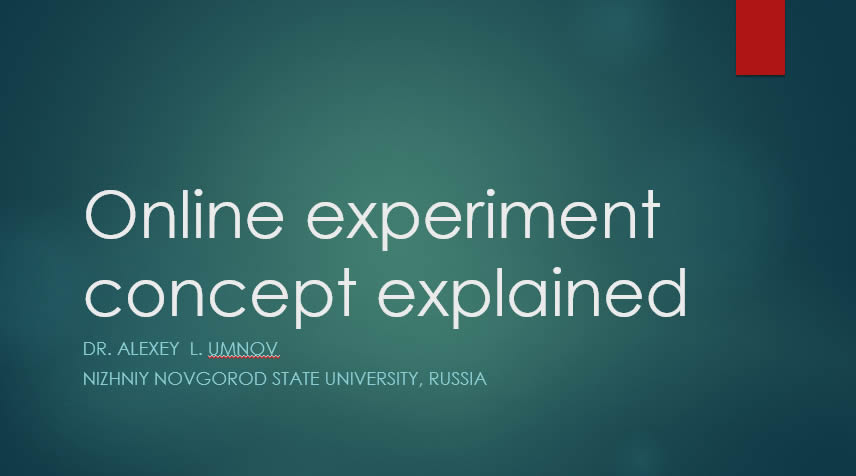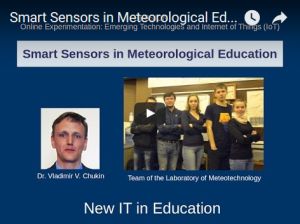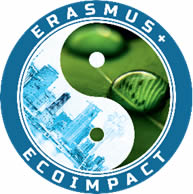CALMet Online 2016-2018
Topic outline
-
In 2018, the year in between CALMet Conferences, we continue using this platform for announcing interesting online events within the community.
You are welcome to join these events, as they are announced.
CALMet Online 2016 consisted of a series of short online interactions distributed throughout the year between May and October 2016. The event was chaired by Roro Yuliana Purwanti (Administration Officer & Trainer, BMKG) and Vesa Nietosvaara (Training Officer, EUMETSAT). This page contains the access to all the past sessions.
THE SESSIONS 2016:
- May 2016 - WMO Course for Trainers 2016
- June 2016 - Gamification
- July - August 2016 - A review of the Australian VLab Centre of Excellence National Himawari -8 Training campaign: Achievement & Challenges
- 26-30 September 2016 - CALMet Moodle Course
- 3-7 October 2016 - Online Experimentation: Emerging Technologies and the Internet of Things (IoT)
- 10-14 October 2016 - Using a New Plug-in for Moodle to Build a Meteorology Simulation
- 10-13 October 2016 - Eumetcal Workshop
- 17-21 October 2016 - How to Make a Competency Assessor More Competent at Assessing
-
Forum
-

Period: May 2016
Facilitators: World Meteorological Organisation (WMO) Train the Trainer instructors (see each Webinar)Introduction: This session acted as the kick-off session. Two bilingual shared webinars webinars were delivered in 23 and 26 May 2016 during WMO Train the Trainers course for worldwide trainers.
-
 Period: June 2016
Period: June 2016
Facilitators: Tsvetomir Ross-Lazarov COMET USA, Brad Snyder EC/Meteorological Service of Canada. -
A Review of the Australian VLab Centre of Excellence National Himawari-8 Training Campaign: Achievements and Challenges
 Period: 23 July- 9 September 2016
Period: 23 July- 9 September 2016-
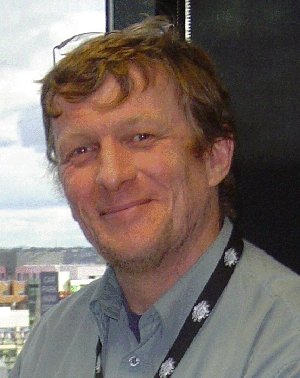
Bodo Zeschke,
Bureau of Meteorology Training Centre,
Australian Bureau of Meteorology
"I was involved in developing training resources and conducting training pertaining to the effective forecaster use of Himawari 8/9 Geostationary Satellite data and data products. This advanced Japanese satellite was launched in October 2014 and became operational in July 2015 to monitor our hemisphere in 16 channels and at 10 minute intervals.
Preparations commenced in 2009 and included topic familiarization by the teachers, communication with the satellite operator representatives and other stakeholders (you can read more about this background preparation at CALMet Commons). It also required finding useful resources and conducting prior training. The Bureau's National Himawari-8 Training Campaign commenced in January 2015."
What you can expect from this session
In this CALMet Online session I will share my experiences regarding how the Himawari-8 training was conducted, including classroom and remote sessions.
I will also tell about the important collaboration with Satellite Champions and other stakeholders, including JMA, KMA, CMA, BMKG Indonesia, EUMETSAT. In addition, I will discuss the impact of the training on the effective use of Himawari-8 data by RAV and RAII stakeholders.Finally, this session will also give you, the CALMet participants an opportunity to participate in a Regional Focus Group meeting which will demonstrate the training in practice.
If you are meteorological staff, especially a meteorological teacher and staff designing training resources in preparation for new generations of geostationary satellites, this session is for you. As an outcome of this session you will have a better understanding of what is required when preparing the user community for a new satellite and satellite products.
In order to make the most of this session, it is preferable that you have a basic understanding of Satellite Meteorology, including an awareness of RGB products.
How to Join
The session is free for anyone to participate. In order to be better informed about the session dates and to receive the notifications about the ongoing discussion into your email, please check you have subscribed to Himawari Training Forum.
1. How to get started
To get started, please click HERE to share with us what you already know about topic being covered and let us know what you would like to find out more about!
2. View recorded sessions & join the forum discussion
Below are short recorded sessions where I review the experiences of the Australian VLab Centre of Excellence in preparing for conducting training pertaining to the effective Forecaster use of Himawari-8 data and data products. Please listen to the recordings:
- TOPIC 1: How the Himawari-8 training was conducted
- TOPIC 2: Collaboration with Satellite Champions and other stakeholders, including JMA, KMA, CMA, BMKG Indonesia, EUMETSAT etc.
- TOPIC 3: Evaluation of the impact of the training on the effective use of Himawari-8 data by RAV and RAII stakeholders.
Next, post any questions that you may have into the Himawari Training Forum. Your comments would also be very appreciated!
3. Listen to the online session
The final online session was conducted during the Australian VLab Centre of Excellence Regional Focus Group meeting conducted online on the 6th September 2016. There were 40 online connections with attendees from Australia, Indonesia, Japan, China and Singapore. The recordings of the sessions are given below.
-
Forum
-
-
 Period: 26-30 September 2016
Period: 26-30 September 2016
Facilitators:Barbara Bourdelles (MeteoFrance), Mustafa Adiguzel (WMO), Patrick Parrish (WMO), Luciane Veeck (WMO VLab), Vesa Nietosvaara (EUMETSAT)


Introduction: In keeping with the goals of the WMO Global Campus, multiple organizations saw mutual needs and came together to create the CALMet Moodle Course. The course teaches about a broad range of Moodle capabilities in the context of the WMO trainer competencies. The self-directed format allows participants to decide how much time to dedicate to the course and when to study. Once enrolled, they can engage at the level they like and make the course fit their schedules. Participants may follow the units in a sequence or pick and choose what to learn when they need it. However, each of the units has self-assessment items — quizzes. Whoever achieves sufficient scores on all the quizzes in a unit is awarded a badge.
The course is being developed by WMO, EUMETCAL, VLab, EUMETSAT, EUMeTrain, IMGW-PIB, and MeteoFrance. The first phase of the course saw completion of three units, and was delivered to the group of pilot participants in the WMO's Moodle Platform from 15 January to 29 February 2016, where there were 56 participants from 36 countries all around the world. The full course of five units is planned to be completed in 2017.How to Join
The session is free for anyone to participate. In order to be better informed about the session and to receive the notifications about the ongoing discussion into your email, please check you have subscribed to CALMet Moodle Course Forum. Forum is also functioned as a place for free practice and opportunities for questions. The Forum will close in one week, although the course will remain available.
The Live Session
This session was held on Tuesday, 27 September 2016, and provided an orientation to the goals, design, and potential uses of the CALMet Moodle Course. Forum for questions available as the participants explore the course.
-
 Period: 3-7 October 2016
Period: 3-7 October 2016
Facilitators: Alexey Umnov (N. I. Lobachevsky State University of Nizhny Novgorod, Russia); Ricardo Costa (Polytechnic Institute of Porto, Portugal); Vladimir Chukin (Russian State Hydrometeorological University, St Petersburg, Russia); Eduard Podgaiskii (Russian State Hydrometeorological University, St Petersburg, Russia)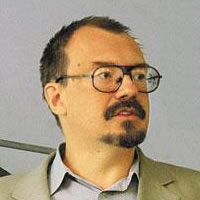
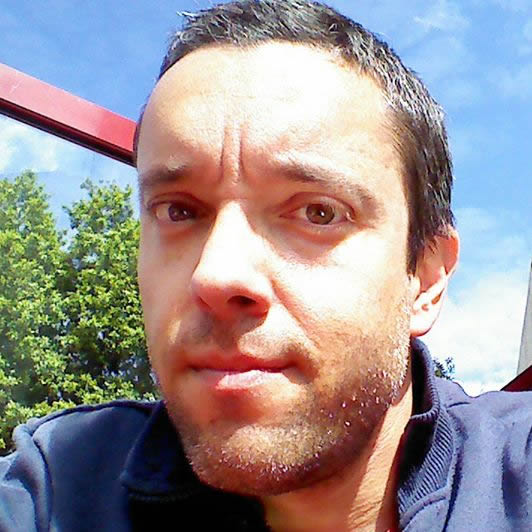
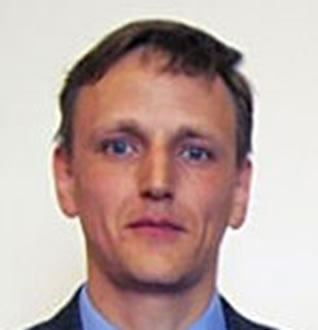
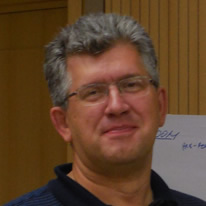
Introduction: The usual challenge for meteorological online learning is how laboratory experiences, particularly those that require access to physical equipment, can be accommodated within the online courses. The proposed session benefits from two approaches: experience of a state-of-the-art remote laboratory project called Virtual Instrument Systems in Reality (VISIR), and potential use of wireless smart sensor networks in environmental monitoring and education.
Live Session: Tuesday 4 October 09:30 UTC by Ricardo Costa on experiments using Remote labs for online education. - Live Session Access -
-
What you can expect from this session
This CALMet Online session will give you an opportunity to hear, learn and reflect on how the online training can take advantage of the state-of-the-art remote laboratories and innovative solutions in environmental monitoring and education.
The session consists of following resources and activitites:
1. Online experiment concept explained Alexey Umnov, N. I. Lobachevsky State University of Nizhny Novgorod, Russia.
2. Demonstration on Remote Laboratory experiment 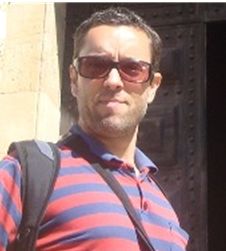
Ricardo Costa, Polytechnic Institute of Porto, Portugal.
Live session will be hosted on Tuesday 4 October 09:30 UTC.
3. Smart Sensors in Meteorological Education Vladimir Chukin, Russian State Hydrometeorological University, St Petersburg, Russia.
4. Discussion Eduard Podgaiskii, Russian State Hydrometeorological University, St Petersburg, Russia.
How to Join
The session is free for anyone to participate. In order to be better informed about the session dates and to receive the notifications about the ongoing discussion into your email, please check you have subscribed to Online Experimentation Forum
-
-
 Period: 10-14 October 2016
Period: 10-14 October 2016
Facilitators: Brendan Kilshaw (UK Met Office), Jodie Ramsdale (UK Met Office), Ian Mills (EUMETSAT).
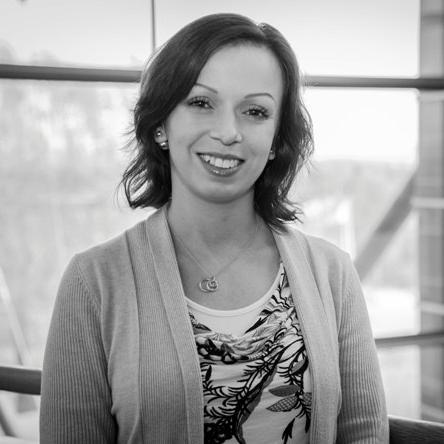
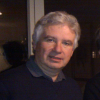

Introduction: As part of a programme of work with the South African Weather Service Regional Training Centre and in collaboration with EUMETSAT, the Met Office College have worked with Catalyst IT Ltd to build on the work of KNMI, EUMETSAT and others to produce a new plug-in for Moodle which allows trainers to build case-study simulations as Moodle learning activities.
The plug-in enables trainers to create simulation case studies directly onto their Moodle course, using the Moodle interface to set the variables, build the menu, create the content and upload data. Using a Moodle learning activity has the advantage of speeding up the build process and allows the trainer to present the simulation in the context of other learning resources and activities on a Moodle course page. Once a simulation has been built it can be backed up and restored like any other Moodle activity and also has an option to download an offline version for use in situations with limited connectivity.

What you can expect from this session
This session will introduce participants to the plug-in and show how to use it.
Activities include a webinar session and a discussion forum. The webinar session will took place at 09:00 UTC on Thursday the 13th of October and will be supported by a recording of the session and documentation about the plugin. The session focuses on the 'how' rather than the 'why' and there is time after the session for questions and discussions about the plug-in conduct in Meteorology Simulation Forum and how it can best be used to support training in the community.
Join the Discussion
In order to be better informed about the session and to receive the notifications about the ongoing discussion into your email, please check you have subscribed to Meteorology Simulation Forum
-
Take part in the survey
-
FeedbackSubmit feedback
Please take 5 mins to answer some questions about your experience of using simulations in a training environment.
-
Watch the Webex recording
-
For those unable to join here is the recording from our WebEx session on Thursday 13th Oct.
Sorry it has taken so long to put up, we have had a few technical issues :)
The audio quality is not great so we will be putting up a new version in the next hour or so.
-
-
 Period: 10-14 October 2016
Period: 10-14 October 2016
Facilitators: Alessandro Chiariello (Eumetcal) and Lisa Haga (Eumetcal)

Introduction: CALMET onliners will be expected to participate in the discussion around the workshop theme “Education and training response to the future role of meteorologists”. Their feedback will be utilized in the workshop final activity.

XI EUMETCAL WORKSHOP -
External tool
XI EUMETCAL Workshop focuses on Developing communication capabilities for meteorological and climate services. This link gives you the access to the EUMETCAL Moodle page, no login is required. You are welcome to view the contents, contributions and resources. The workshop presentations will be added here later.
-
 Date: 17-21 October 2016
Date: 17-21 October 2016
Facilitators:


Alexandru Hozoc (Romatsa) Claudia Faccani (ENAV) Paul Bugeac (Romatsa) Phil Merritt (UK Met Office) Tony Tighe (Met Eireann)
Introduction: Significant effort has been put into developing competencies for our meteorological personnel. To ensure that we can judge that our personnel are meeting these competencies, it is equally important that we ensure those completing the assessments are also competent in what they are doing. To enable this, Eumetcal are facilitating the development of an online and face-to-face course which will focus on assessor competencies, and provide best practice guidance about how to approach different styles of assessment.This CALMet online session will provide the opportunity to see and discuss some of the different areas this course will cover in terms of an assessor’s knowledge and performance:
- Definition of competency and assessment
- Context and purpose of the assessment
- Assessment structure
- Assessment process
- Importance of the human factor
- Connection between the QMS and CA
How to Join
The session is free for anyone to participate. In order to be better informed about the session dates and to receive the notifications about the ongoing discussion into your email, please check you have subscribed to Competency Assessment Forum.
The online webinar session was conducted at Tuesday 18 October 2016 at 12 UTC. This opening (live) session discussed regarding the concept of competencies and the means of proving that meteorological personnel is really competent.
Click here to playback the RECORDING.
Password : WjHQ2UmV





